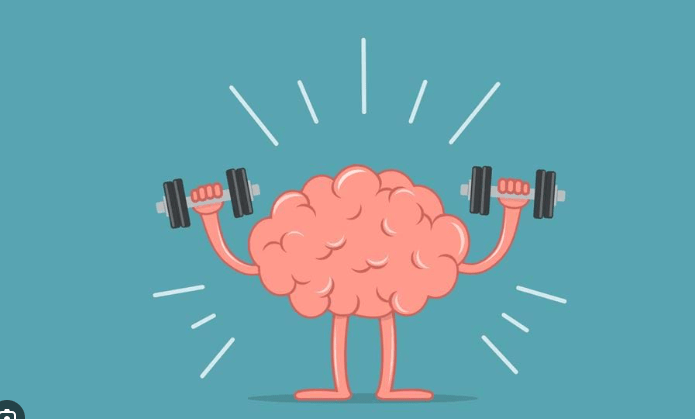Engaging in sports goes beyond physical fitness; it significantly
impacts mental health and happiness. Scientific research and
personal experiences demonstrate the positive effects of sports
on our minds.
How Sports Enhance Mental Health and Happiness?
Engaging in regular physical activity through sports helps
regulate mood and enhances overall emotional well-being.
Sports often involve teamwork and collaboration, fostering
social interactions and connections. Choose any sports like
soccer and gymnastics, etc to maintain your health. Is
gymnastics considered a sport? Yes, gymnastics is a good
sport that requires good strength with excellent flexibility.
Joining a sports team or participating in group activities
introduces individuals to like-minded peers, reducing feelings of
isolation and loneliness.
Ways Sports Boost Mental Health and Happiness
1. Regular Cardiovascular Exercise
Engaging in cardiovascular sports like running, swimming, or
cycling improves cardiovascular health while triggering the
release of endorphins, combating stress and promoting
emotional well-being.
2. Team Sports for Camaraderie
Team sports like soccer, basketball, and volleyball provide a
sense of belonging and foster social connections, reducing
feelings of loneliness and improving mental health.
3. Yoga and Mindfulness Practices
Yoga and mindfulness-based sports enhance relaxation, reduce
anxiety, and improve focus through a combination of physical
postures and calming breathing exercises.
4. Setting and Achieving Goals
Sports allow individuals to set and achieve goals, boosting self-
confidence, and providing a sense of purpose and
accomplishment.
5. Outdoor Activities for Nature's Benefits
Engaging in outdoor sports like hiking, kayaking, or trail
running combines physical activity with the healing effects of
nature, promoting mental well-being.
6. Martial Arts for Discipline and Focus
Martial arts sports cultivate discipline, self-control, and mental
focus, leading to improved self-esteem and emotional stability.
7. Dance for Expressive Outlet
Dance-based sports encourage self-expression, creativity, and
emotional release, contributing to improved mental health and
happiness.
8. Sports as Stress Outlets
Using sports as a healthy outlet for stress allows individuals to
channel negative emotions into positive energy, leading to
reduced stress levels and increased happiness.
9. Endorphin-Boosting Workouts
Engaging in high-intensity interval training (HIIT) and other
endorphin-boosting workouts helps combat anxiety and
depression while enhancing overall mood.
10. Sports and Social Support
Participating in sports fosters social support systems, creating a
network of individuals who share similar interests and provide
emotional encouragement.
Why are sports beneficial for your mental
health?
1. Sports for Relaxation
Recreational sports like golf or swimming offer relaxation and
leisure, contributing to reduced stress and improved mental
well-being.
2. Mind-Body Balance with Pilates
Pilates emphasizes core strength, flexibility, and mindfulness,
promoting a balanced mind-body connection and mental
resilience.
3. Sports for Resilience
Overcoming challenges in sports cultivates resilience, teaching
individuals how to adapt, learn from failures, and persevere in
the face of difficulties.
4. Adventure Sports and Thrills
Adventure sports like rock climbing, skydiving, and bungee
jumping provide adrenaline rushes that elevate mood and
increase feelings of exhilaration.
5. Creative Expression Through Sports
Creative sports like gymnastics or figure skating combine
artistic expression with physical prowess, providing a holistic
approach to mental well-being.
6. Brain-Boosting Effects of Sports
Engaging in strategic sports like chess or tennis stimulates
critical thinking, problem-solving, and cognitive abilities,
contributing to mental sharpness.
7. Sports for Time Management
Balancing sports with daily routines enhances time management
skills, reducing stress from busy schedules and promoting a
sense of control.
8. Building Social Skills Through Sports
Participating in group sports enhances communication,
teamwork, and conflict resolution skills, leading to improved
interpersonal relationships.
9. Sports as Mood Elevators
Physical activity triggers the release of endorphins, serotonin,
and dopamine, collectively acting as natural mood enhancers.
10. Sports for Mindfulness
Engaging in sports that require focus, such as archery or golf,
promotes mindfulness and the practice of being present in the
moment.
11. Emotional Release Through Sports
Sports provide a healthy outlet for emotional release, allowing
individuals to channel stress, frustration, and anger into physical
activity.
12. Sports and Cognitive Resilience
Regular participation in sports supports cognitive resilience,
reducing the risk of cognitive decline and age-related cognitive
disorders.
13. Sports for Confidence in Body Image
Achieving fitness goals through sports improves body image
perceptions, leading to greater self-acceptance and self-esteem.
14. Lifelong Learning Through Sports
Learning new sports skills and strategies fosters continuous
learning, mental stimulation, and personal growth.
FAQs
Q: Can Any Type of Sport Boost Mental Health?
A: Yes, various types of sports can boost mental health. Choose
activities that you enjoy and that align with your fitness level
and preferences.
Q: Can Sports Replace Professional Mental Health
Treatment?
A: While sports offer substantial benefits, they are not a
replacement for professional mental health treatment. Consult a
mental health professional if you're struggling with severe
issues.
Q: Can Sports Help Reduce Anxiety?
A: Yes, sports can help reduce anxiety by promoting relaxation,
improving mood, and reducing stress hormones.



